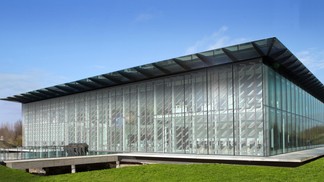Oct 30 2015
Roel LOONEN will be the speaker of the next IDEAS Conference, entitled "Adaptive facades: Uniting the benefits of passive designs with the flexibility of active technologies". It will take place on Thursday 05 November 2015 at 12:30 pm in the IDEAS space (LE Building).

This presentation deals with adaptive facades. We all know some examples in iconic buildings, but we also know that their application in the current building stock is very limited. Nevertheless, the literature abounds with studies that show how various adaptive façade technologies can improve thermal and visual comfort conditions, while providing energy-saving opportunities. There is currently a gap between (i) this type of “potential studies”, (ii) product development activities, and (iii) design decision-making in the building industry. This presentation is positioned at the interface between these three fields, and will present an overview of both experimental (user interaction) and simulation-based research findings, conducted in the Building Physics and Services Unit at Eindhoven University of Technology (TU/e), The Netherlands.
Roel Loonen is doctoral researcher, and will soon defend his PhD thesis, in the group of prof. Jan Hensen at TU/e. His research focuses on dynamic building envelopes, and how they can help transform the built environment towards more energy efficiency with better indoor environmental quality. In this project, he has developed a simulation and optimization framework that enables performance prediction of buildings with time-varying characteristics. These simulations are used to identify high-potential future facade concepts. At the same time, he is actively involved in the research and development process of a number of innovative building envelope technologies.
The axis Integrated Design, Architecture and Sustainability (IDEAS) is a joint initiative of both the Interdisciplinary Laboratory of Performance-Integrated Design (LIPID) and Laboratory of Architecture and Sustainable Technologies (LAST) of the ENAC School at EPFL. It aims to address an increased integration of the various issues related to sustainable architecture within the framework of the Master Cycle in Architecture, Civil and Environmental Engineering, as well as the Doctoral program Architecture & Science of the city (EDAR).